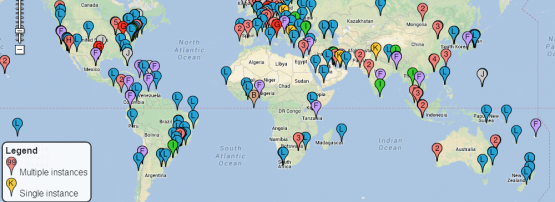
The Root Server Stability Advisory Committee (RSSAC) meets every IETF, as a side activity (not on the IETF agenda). This is one of the primary meeting points for the 13 principal root server operators, and outside of their own ‘root ops’ meeting they hold an RSSAC committee meeting as an ICANN reporting function they self-organize under ICANN processes. As a result of community feedback, they decided to implement a more public engagement process and have designed a caucus meeting as an adjunct to their closed meeting. About 40 people met today, discussing an initial agenda inherited from the older model, RSSAC-001 and RSSAC-002 being the two principle documents they have in design. One on the technical requirements for hosting and operating a root server, the other on measurement activities they need to have undertaken to understand the dynamics of the DNS root.
Its early days for the caucus and it still needs to find its feet and a sense of purpose. Its public engagement is inevitably going to become interesting in the context of the NTIA transition issues ICANN is facing, and the root of the DNS is one of the principal points of pain for international oversight. Defusing the politics behind the technical operations issues is good for everyone. The RSSAC caucus has a very clear sense that the discussions over gTLD and ccTLD are not their core responsibility, the focus is on understanding the background processes of managing and operating a root server system.
Few ICANN activities intrude directly into the IETF, apart from the provision of the IANA function. This is one of the ones which does form a crossing-over-place between technology and policy. APNIC was offered a chance to submit a caucus member, and along with the RIPE NCC and LacNIC has secured a position. This gives the RIR community three voices in the caucus and opportunities for consensus and feedback to documents under review.
A summary of the existing activities and processes can be found at:
https://www.icann.org/resources/pages/rssac-caucus-2014-05-06-en
APNIC is participating and I am the ‘stuckee‘ for this meeting so I’ll report back here as I attend sessions, such as at the next IETF Hawaii meeting in November.
The views expressed by the authors of this blog are their own and do not necessarily reflect the views of APNIC. Please note a Code of Conduct applies to this blog.
